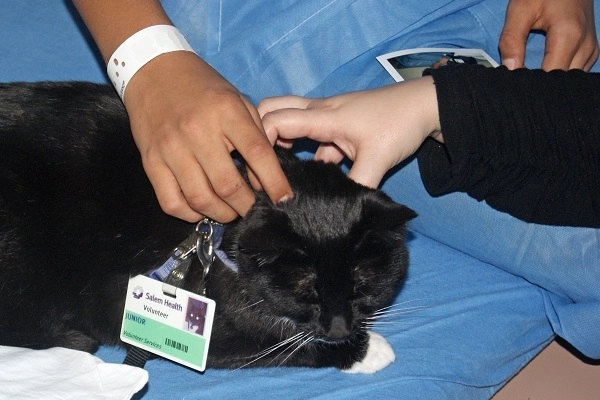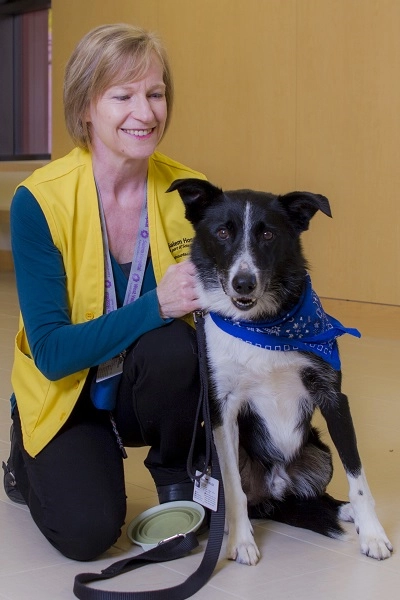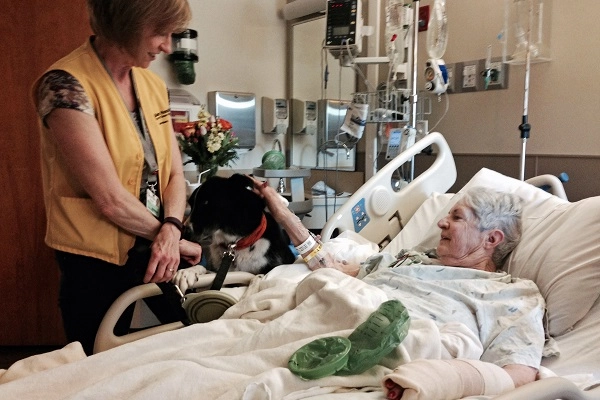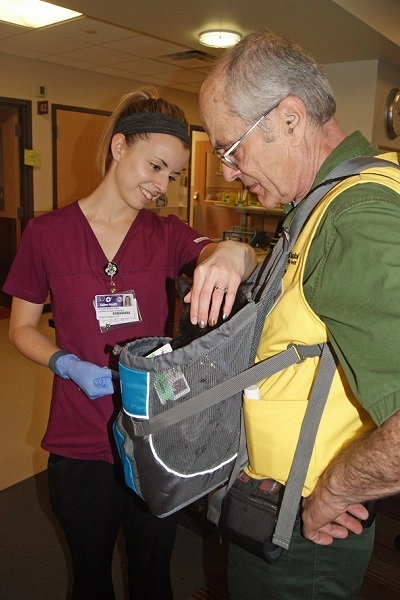Four-legged volunteers comfort patients and staff


The oldest evidence of the human-animal bond can be traced to a 12,000-year-old human skeleton discovered in Israel. The skeleton was buried with its hand resting on the skeleton of a 6-month-old wolf pup.
Is it any wonder that pets impact our health — even as part of a hospital medical team? Salem Health takes the idea seriously, offering visits to patients from certified pet therapists (and their humans).
“Requests from staff for a dog or cat visit to a patient’s room are increasing,” said Volunteer Services Manager Earlene Naylor, noting she’s recruiting more help through a grant to fund training and hopes to have more animals this summer. Nurse managers regularly request visits, she noted — and when requests come from pediatrics, the children always want to know when they’re coming back.
Currently, cats Junior, Leo and Squeek travel the hospital with their human, George. Bently comes with his human, Ann, and patients can also request visits from a sheepdog and a lab.

“Bently loves doing tricks, gets a few pets, then looks for the next patient,” Ann said. “He’s a border collie, so he has a short attention span.” But not always, apparently.
Ann got lost one day — but it must have been on purpose, she said. A nurse tapped her from behind, asking for help with a patient who wasn’t expected to make it through the night. He was all alone.
“I let him rest his legs on Bently, who stayed the longest time, which was so unusual for him. He must have known he was needed. Bently finally left on his own, when the morphine kicked in and the patient fell asleep.”

The animals also help staff. “A nurse had just lost a patient, so I led Bently to her,” Ann said. “She just held him and cried. It’s so heartwarming to know he brings comfort.”
According to Salem Health emergency medicine physician Rob Kelly, therapy pets give his patients something positive to focus on. “That’s proven to decrease physical pain and mental stress,” he said. “Pets provide an unconditional companionship which is calming and reassuring in an unfamiliar clinical environment. I personally enjoy petting the cats when George is making rounds in the ER as it gives me a mental break from the stresses of the job.”